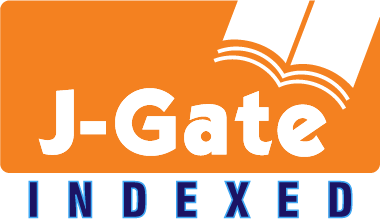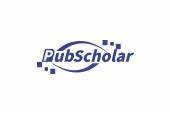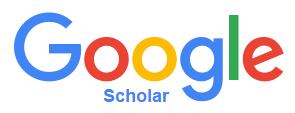-
Publication Ethics
Advanced Ultrasound in Diagnosis and Therapy (AUDT) adheres to the ethical guidelines for journal publications put forth by the Committee on Publication Ethics (COPE) and International Committee of Medical Journal Editors (ICMJE), viewable on the COPE website , and ICMJE website .
Authorship. The corresponding author is responsible for the appropriateness and completeness of the authorship list, appropriate credit attribution, and agreement of all authors to the journal’s open access, ethical, and if applicable, data sharing policies.
Originality. All articles published in AUDT must represent original work. While under consideration at AUDT, they cannot be submitted for publication elsewhere.
Plagiarism and Research Fraud. A determination of plagiarism or fabrication by the journal will require contacting the corresponding author’s institution and possibly funding agencies. If plagiarism or fabrication is determined post-publication, the journal will investigate potential courses of action, up to and including formal retraction of the article. All articles submitted to AUDT will be screened for plagiarism by CrossCheck plagiarism checker software.
Retraction Statement. In the event that an article is determined to have clear evidence that the findings are unreliable, either as a result of misconduct or honest error, a Notice of Retraction will be attached to all versions of the article on the AUDT website and related bibliographic databases. For full Retraction Guidelines, please visit the following COPE webpage: COPE Retraction Guidelines
Anti-Plagiarism Policy of AUDT
Nine Basic Forms of Plagiarism
(1) Self- (or team) plagiarism without identification and acknowledgement;
(2) Cutting and pasting of others' work without identification and acknowledgement;
(3) Replication of methods sections (in Biomedical journals) without clear statement of the source;
(4) Republication of conference papers with little added value;
(5) Review papers which largely replicate previously published content;
(6) Plagiarism of images/tables/formulae/data without both acknowledgement and copyright permission;
(7) Plagiarism of ideas;
(8) Wholesale plagiarism of previously published text;
(9) Republication in translation without acknowledgment, permission and full citation;
Anti-Plagiarism Policy in AUDT
The following are acceptable, provided always that (a) the quotation (if any) is typographically identified (by quotation marks or, for longer extracts, indentation), (b) the source is acknowledged in the text, and (c) a full citation to the original is given:
(1) Quotation of a modest amount (under 100 words) of the author’s own or others’ text;
(2) Paraphrase of previously published text in the author’s own words;
(3) Repetition of someone else’s ideas;
(4) Reproduction of a chart, image, table or key equation from your own or someone else’s work (provided copyright permission has been obtained from the original copyright owner, and acknowledgement is included in whatever form they request);
(5) In Biosciences papers it is acceptable to reproduce the description of a standard/homemade method from a previously published source, provided the source is properly acknowledged;
(6) Republication of a previously published conference paper is acceptable, if 60% or more of the content is new and substantive (provided copyright permission has been obtained from the original copyright owner, and acknowledgement is included in whatever form they request).
The following are unacceptable in any circumstances:
(7) Duplicate publication of an entire article;
(8) Major plagiarism of the work of others (SMSI>10 % or OSI>35%);
(9) Serious self (or team)-plagiarism (SMSI>10% or OSI>35%);
(10) Review papers which reproduce substantial amounts of the texts discussed (OSI>35%).
Text and Data Mining (TDM) Policy
Advanced Ultrasound in Diagnosis and Therapy (AUDT) recognizes that text and data mining (TDM) is increasingly seen as a useful method for analyzing large volumes of unstructured documents, which can meet the needs of researchers and support the innovation and development of new knowledge. AUDT participates in CrossRef Text and Data Mining Services. Researchers are able to text mine content accessed via CrossRef and Springer’s Metadata API. Our current policy will be updated from time to time.
Terms and Conditions for TDM
AUDT grants TDM rights to subscribed contents since 2018. These terms and conditions shall be accepted by anyone granted access to AUDT’s website for TDM purposes.
1. TDM access is provided to subscribers only for noncommercial research purposes.
2. Outputs of anything generated directly by TDM must be licensed by the user under a Creative Commons CC-BY license, Version 4.0.
3. Output can include snippets of up to a maximum of 200 characters from the original text, excluding text entity matching or bibliographic metadata.
4. The selection and refinement of desired articles can be conducted by using existing search methods and tools, such as CrossRef and Springer’s Metadata API. Full-text contents can be accessed easily and programmatically at URLs based on the articles’ DOIs.
TDM Agreement
Text mining access for subscription content is provided to subscribers for noncommercial research purposes. Once a click through agreement is accepted, AUDT grants the researchers to access data obtained available by the API and will deliver the API documentation using query algorithms (e.g., curl, Python) and cryptographic API keys through CrossRef Text and Data Mining Services.
We are glad to accommodate if any researchers who have specific text mining needs. Please email to publisher@audt.org.














